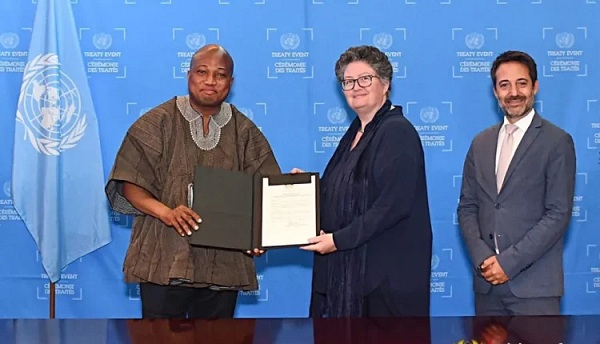Ghana has officially reaffirmed its position as a nuclear-weapon-free state by depositing its instrument of ratification of the Treaty on the Prohibition of Nuclear Weapons (TPNW) at the United Nations.
This was announced in a Facebook post by the Minister of Foreign Affairs and Regional Integration, Samuel Okudzeto Ablakwa, who commended Cabinet and Parliament for their unanimous ratification of the treaty.
In his remarks, the Minister highlighted Ghana’s long-standing consistency across political administrations in championing global nuclear disarmament. He stressed that the country has always advocated for “a new world without nuclear weapons,” recalling that Ghana’s first President, Osagyefo Dr. Kwame Nkrumah, convened the historic World Without the Bomb conference in Accra in 1962.
“This is a proud moment for Ghana and one that would have made our Founder absolutely proud,” the Minister stated.
He also expressed his honour in meeting Melissa Parke and Seth Shelden of the International Campaign to Abolish Nuclear Weapons (ICAN) during the UN General Assembly. ICAN, which won the 2017 Nobel Peace Prize, has played a key role in advancing global advocacy for the elimination of nuclear weapons.
The TPNW, adopted at the UN in 2017 and entered into force in January 2021, is the first legally binding international agreement to comprehensively ban nuclear weapons. It prohibits their development, testing, production, possession, stockpiling, and use.
The ratification aligns Ghana with 68 states that are parties to the treaty, which prohibits the development, testing, possession, and use of nuclear weapons.
Despite this progress, nine countries continue to maintain nuclear weapons: the United States, Russia, China, France, the United Kingdom, India, Pakistan, Israel, and North Korea. These states are not party to the treaty, and their ongoing nuclear programmes remain a challenge to global disarmament.





